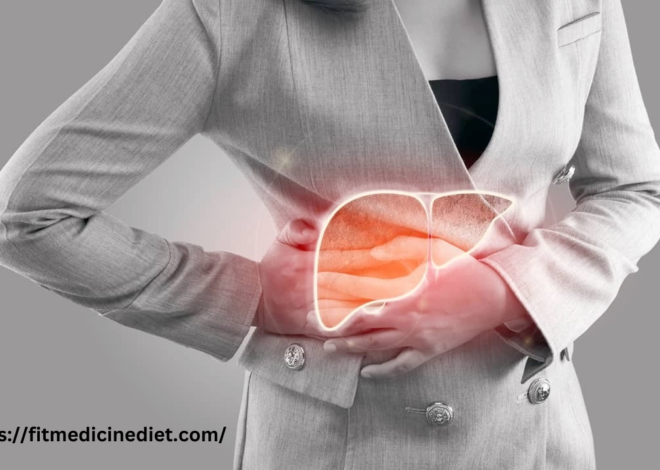
Carbs in Blueberries: Exploring the 100% Nutritional Profile and Health Benefits
Blueberries are small, round berries that are not only delicious but also packed with essential Carbs in Blueberries. They are known for their vibrant color and sweet-tart flavor, making them a popular addition to various dishes and snacks. Apart from their taste, blueberries offer numerous health benefits, including being a rich source of vitamins, minerals, and antioxidants.
Understanding Carbs in Blueberries:
What are Carbohydrates?
“Carbohydrates, alongside proteins and fats, constitute one of the three essential macronutrients required by the human body.” They are the primary source of energy and play a crucial role in fueling various bodily functions. Carbohydrates are composed of sugars, starches, and fibers, which are broken down during digestion to release glucose, the body’s primary energy source.
Different Types of Carbohydrates and Carbs in Blueberries
Carbohydrates can be classified into two primary types: simple carbohydrates and complex carbohydrates. Complex carbohydrates, on the other hand, are found in foods like whole grains, vegetables, and legumes, and they provide sustained energy due to their slower digestion.

Nutritional Composition of Blueberries
Overview of Carbs in Blueberries
Carbs in Blueberries are low in calories but high in nutrients, making them an excellent choice for a healthy diet. They are packed with vitamins C and K, manganese, and fiber. Additionally, blueberries are known for their potent antioxidant properties, which help protect the body against oxidative stress and inflammation.
Carbohydrate Content in Blueberries
While blueberries contain carbohydrates, they are relatively low in calories and sugars compared to other fruits. A one-cup serving of fresh blueberries contains approximately 21 grams of carbohydrates, with about 15 grams of sugar and 4 grams of fiber. This fiber content contributes to their low glycemic index, making them a suitable option for those monitoring their blood sugar levels.
Benefits of Carbs in Blueberries
Rich in Antioxidants
Blueberries are among the richest sources of antioxidants, particularly flavonoids like anthocyanins. These compounds have been shown to have various health benefits, including reducing inflammation, improving cognitive function, and protecting against chronic diseases such as heart disease and cancer.
Improves Heart Health
The antioxidants present in blueberries, along with their high fiber content, contribute to improved heart health. Regular consumption of blueberries has been linked to lower levels of LDL cholesterol, reduced blood pressure, and improved arterial function, all of which help reduce the risk of heart disease.
Aids in Weight Management
Despite their sweet taste, blueberries are relatively low in calories and can be a satisfying snack for those looking to manage their weight. The fiber content in blueberries helps promote satiety, reducing the likelihood of overeating. Additionally, their natural sweetness can satisfy sugar cravings without the need for added sugars or processed snacks.
Impact of Carbs in Blueberries on Health
Glycemic Index of Blueberries
The glycemic index (GI) is a measure of how quickly carbohydrates in food raise blood sugar levels. Foods with a high GI cause a rapid spike in blood sugar, while those with a low GI result in a slower, more gradual increase. Blueberries have a low GI, meaning they have a minimal impact on blood sugar levels and can be consumed as part of a balanced diet, even for individuals with diabetes.
Effect on Blood Sugar Levels
The combination of fiber and antioxidants in blueberries helps regulate blood sugar levels by slowing down the digestion and absorption of carbohydrates. This can help prevent sudden spikes and crashes in blood sugar levels, promoting stable energy levels and reducing the risk of insulin resistance and type 2 diabetes.
Incorporating Blueberries into Your Diet with help of Carbs in Blueberries
Healthy Ways to Enjoy Blueberries
There are countless ways to incorporate blueberries into your diet, whether fresh, frozen, or dried. Add them to your morning oatmeal or yogurt, blend them into smoothies, or toss them into salads for a burst of flavor and nutrition. You can also bake them into muffins, pancakes, or bread for a tasty treat that’s both nutritious and satisfying.
Recipes and Serving Suggestions
- Blueberry Spinach Salad: Toss together fresh spinach, blueberries, sliced almonds, and crumbled feta cheese. Drizzle with a balsamic vinaigrette for a refreshing and nutrient-packed salad.
- Blueberry Overnight Oats: Combine rolled oats, almond milk, Greek yogurt, and fresh blueberries in a jar. Let it sit overnight in the fridge, then top with additional blueberries and nuts before serving.
- Lemon Blueberry Muffins: Mix together flour, sugar, baking powder, lemon zest, and fresh blueberries. Fold in Greek yogurt and eggs, then bake until golden brown for delicious and fluffy muffins.
Conclusion about Carbs in Blueberries
In conclusion, blueberries are not only delicious but also incredibly nutritious, particularly when it comes to their carbohydrate content. With their low calorie and sugar content, along with their high fiber and antioxidant properties, blueberries make a fantastic addition to any diet. Whether enjoyed fresh, frozen, or incorporated into various recipes, blueberries offer numerous health benefits and can be a tasty way to support overall well-being.
5 Unique FAQs about Carbs in Blueberries
- Are blueberries high in carbs?
- While blueberries do contain carbohydrates, they are relatively low in calories and sugars compared to other fruits. Additionally, the fiber content in blueberries helps slow down the digestion and absorption of carbohydrates, making them suitable for most diets.
- Can Carbs in Blueberries help with weight loss?
- Yes, blueberries can be beneficial for weight loss due to their low calorie and high fiber content. They help promote feelings of fullness and satisfaction, making it easier to control portion sizes and reduce overall calorie intake.
- Are there any side effects of consuming too many blueberries?
- While blueberries are generally safe for consumption, eating excessive amounts may cause gastrointestinal discomfort in some individuals. It’s important to consume them moderately as a component of a well-balanced diet.
- Can diabetics eat blueberries?
- Yes, blueberries can be part of a diabetic-friendly diet due to their low glycemic index and high fiber content. However, individuals with diabetes should monitor their portion sizes and overall carbohydrate intake to manage blood sugar levels effectively.
- Are frozen blueberries as nutritious as fresh ones?
- Yes, frozen blueberries are just as nutritious as fresh ones, as they are typically frozen at peak ripeness, locking in their nutritional value. They are a convenient option for enjoying blueberries year-round and can be used in various recipes without compromising taste or health benefits.


